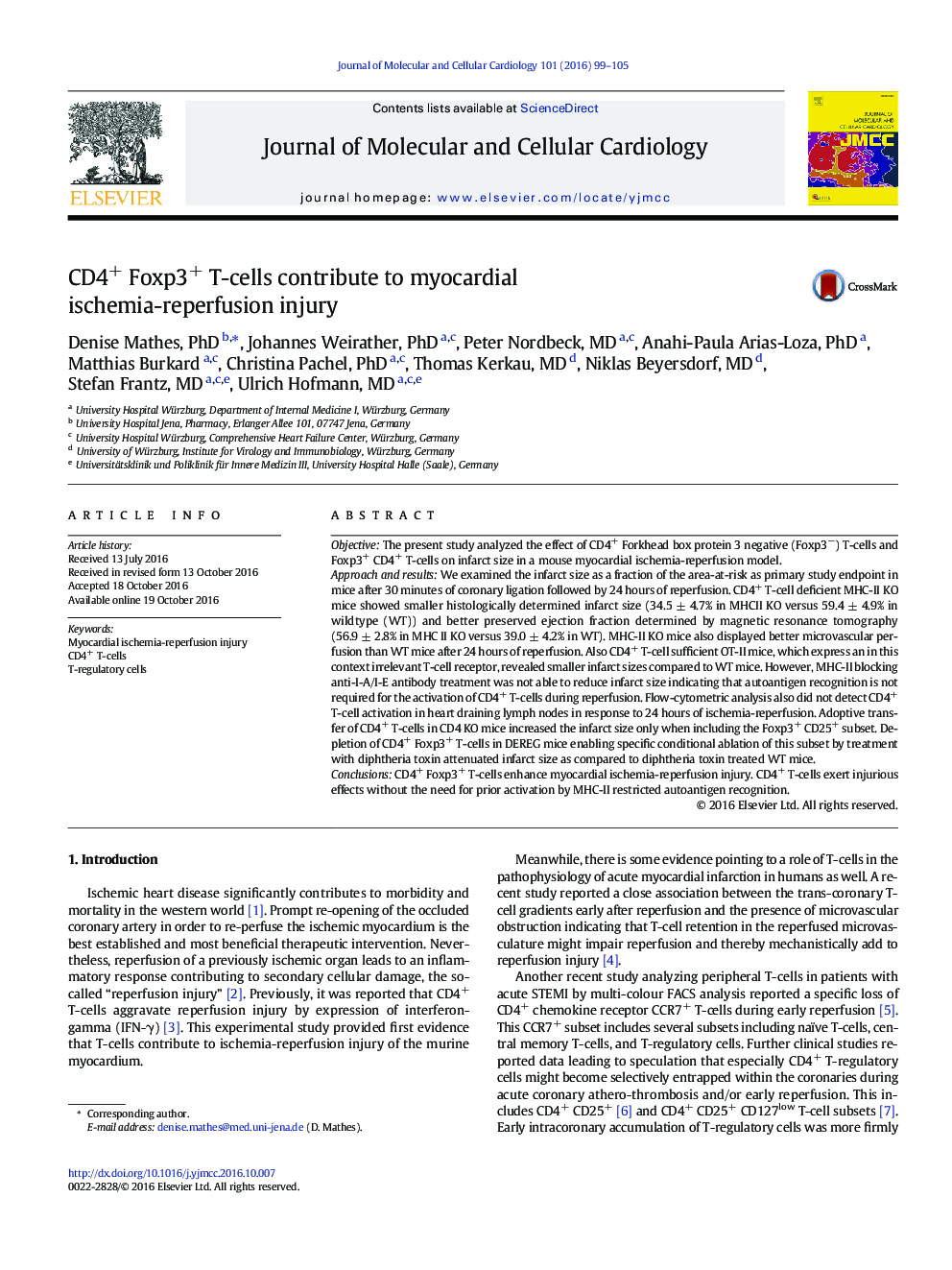| Article ID | Journal | Published Year | Pages | File Type |
|---|---|---|---|---|
| 5533674 | Journal of Molecular and Cellular Cardiology | 2016 | 7 Pages |
â¢Infarct size is reduced in the absence of CD4+ T-cells after myocardial IR.â¢Microvascular reperfusion is better in the absence of CD4+ T-cells after IR injury.â¢Ejection fraction is better in the absence of CD4+ T-cells after myocardial IR.â¢Presence of endogenous Foxp3+ CD4+ T-cells enhances myocardial IR injury.
ObjectiveThe present study analyzed the effect of CD4+ Forkhead box protein 3 negative (Foxp3â) T-cells and Foxp3+ CD4+ T-cells on infarct size in a mouse myocardial ischemia-reperfusion model.Approach and resultsWe examined the infarct size as a fraction of the area-at-risk as primary study endpoint in mice after 30 minutes of coronary ligation followed by 24 hours of reperfusion. CD4+ T-cell deficient MHC-II KO mice showed smaller histologically determined infarct size (34.5 ± 4.7% in MHCII KO versus 59.4 ± 4.9% in wildtype (WT)) and better preserved ejection fraction determined by magnetic resonance tomography (56.9 ± 2.8% in MHC II KO versus 39.0 ± 4.2% in WT). MHC-II KO mice also displayed better microvascular perfusion than WT mice after 24 hours of reperfusion. Also CD4+ T-cell sufficient OT-II mice, which express an in this context irrelevant T-cell receptor, revealed smaller infarct sizes compared to WT mice. However, MHC-II blocking anti-I-A/I-E antibody treatment was not able to reduce infarct size indicating that autoantigen recognition is not required for the activation of CD4+ T-cells during reperfusion. Flow-cytometric analysis also did not detect CD4+ T-cell activation in heart draining lymph nodes in response to 24 hours of ischemia-reperfusion. Adoptive transfer of CD4+ T-cells in CD4 KO mice increased the infarct size only when including the Foxp3+ CD25+ subset. Depletion of CD4+ Foxp3+ T-cells in DEREG mice enabling specific conditional ablation of this subset by treatment with diphtheria toxin attenuated infarct size as compared to diphtheria toxin treated WT mice.ConclusionsCD4+ Foxp3+ T-cells enhance myocardial ischemia-reperfusion injury. CD4+ T-cells exert injurious effects without the need for prior activation by MHC-II restricted autoantigen recognition.
